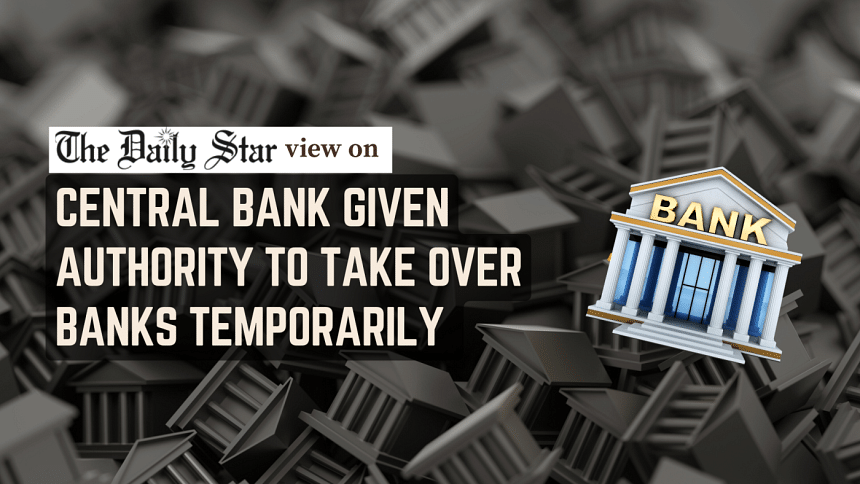Strengthening central bank was necessary, it's now its turn to deliver

Under the Bank Resolution Ordinance 2025, the interim government has granted the central bank sweeping new powers to intervene in the banking sector, which continues to reel from the legacy of corruption and mismanagement indulged by the Awami League regime. As a result, the authorities can now take temporary control of any scheduled bank, if necessary, by issuing share transfer orders, provided the transferee is a government entity. The central bank had long sought such authority, as it would grant it greater freedom to intervene in the sector and restore discipline. In that respect, the ordinance marks a positive step forward.
A notable feature of the ordinance is the introduction of "bridge banks," which are temporary financial institutions established to take over failed banks. These bridge banks will ensure the continuity of banking operations during the resolution process by temporarily holding the assets of failed banks until a permanent solution is found. Bridge banks can also act as a buffer, isolating distressed banks from the broader financial system to prevent panic withdrawals or bank runs.
The new law also authorises the central bank to act immediately in cases of fraud or gross mismanagement—such as when bank owners divert funds for personal use—by triggering formal resolution proceedings. Under the now-ousted regime, widespread corruption, particularly by bank owners with political ties to the government, seriously undermined the health of many banks. Consequently, at least a dozen of the country's 61 banks are currently believed to be in poor condition, with some surviving only through liquidity support from the central bank. Additionally, the central bank will now have the authority to appoint temporary administrators to manage distressed banks and implement necessary recovery measures. It can also raise capital from new or existing shareholders to strengthen their financial standing.
A notable feature of the ordinance is the introduction of "bridge banks," which are temporary financial institutions established to take over failed banks. These bridge banks will ensure the continuity of banking operations during the resolution process by temporarily holding the assets of failed banks until a permanent solution is found. Bridge banks can also act as a buffer, isolating distressed banks from the broader financial system to prevent panic withdrawals or bank runs. To support such interventions, a Bank Restructuring and Resolution Fund will be established through government contributions, support from international financial institutions, and risk-based levies on banks.
On paper, these additional measures could be useful tools in the central bank's toolkit for addressing the sector's longstanding problems. The need to strengthen the central bank has long been overdue. However, we hope that, beyond reinforcing the legal framework, efforts will also be made to improve the poor track record of enforcing rules and regulations in our financial sector. This is where the focus must now lie—to prevent banks from falling into disarray in future.

 For all latest news, follow The Daily Star's Google News channel.
For all latest news, follow The Daily Star's Google News channel. 








Comments